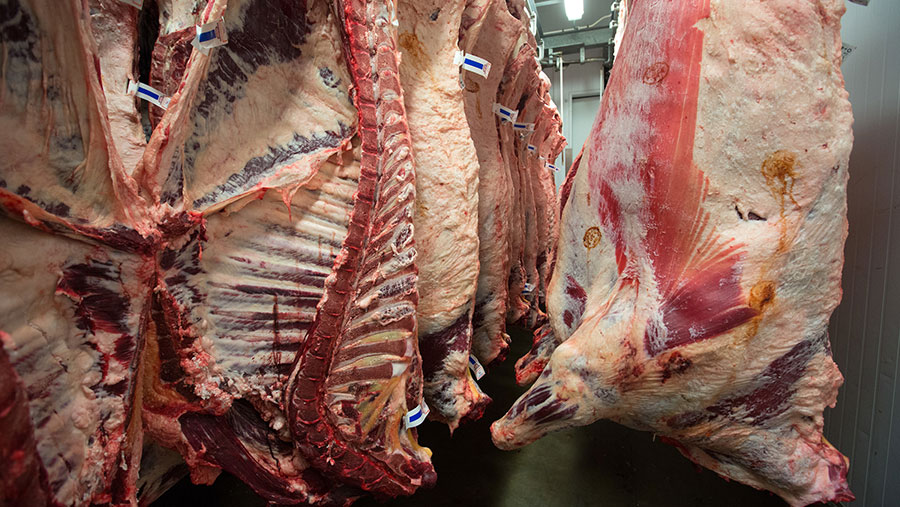Coronavirus: Irish wage subsidies threaten UK meat markets
 © Tim Scrivener
© Tim Scrivener UK meat processors fear that a ramping up of Ireland’s Covid-19 wage subsidy system for staff who continue to work is giving Irish firms a competitive edge and could lead to a flood of cheaper imports of beef and lamb.
The scheme previously applied only to employees with annual incomes of less than €24,400 (£21,500), which would have ruled out skilled workers in the meat-processing sector.
See also: Furlough payments system faces delays
But as well as the portion of salary paid by the government now increasing to 85%, firms can claim salary support for their higher income earners too.
Industry body British Meat Processors Association (BMPA) said a support system that is more extensive and flexible than the one in place in the UK could give Irish firms a competitive advantage.
With the government picking up most of the bill for salaries, it would significantly reduce the cost of production of Irish processed meat.
However, to qualify for the aid, businesses must demonstrate a 25% reduction in turnover between 14 March and 30 June.
Open to abuse
Phil Stocker, chief executive of the National Sheep Association (NSA), believes a cut of this scale is unlikely and is concerned the scheme could be open to abuse.
“There is a natural seasonal dip in numbers of lambs being slaughtered at this time of the year and this must be taken into account,” he said.
Meanwhile, the BMPA is critical of the UK government’s “all-or-nothing” approach to furloughing.
“The BMPA has been pressing the UK government to introduce a more flexible system, which would allow British firms to reduce production by paying staff for part-time hours, with the government paying them on the remaining furlough days.
“Crucially, this would also cost the taxpayer less. Currently, staff either have to continue working full time or be completely furloughed.”
Despite the pressures, all major UK abattoirs are currently operating.
Dawn Meats, which runs multiple beef and lamb processing plants in the UK, said while there had been strong levels of demand from retail customers in recent weeks, the decline in demand from restaurant and food service customers had reduced its outlet for higher-value steak cuts.
This had created an imbalance that “is challenging to manage’’.
“To date, we have been able to redeploy staff to serve the increased grocery sector demand, and all our abattoirs are open to receive cattle from our farmer suppliers,” said a spokesperson.
But 13 smaller UK abattoirs processing red and white meat have closed since the lockdown restrictions were put in place.
Norman Bagley, policy director of the Association of Independent Meat Suppliers, said there were logical reasons for the closures and all were outsourcing the work to bigger plants, so there was no interruption in supply to butchers and other customers.
But he is concerned that some of these temporary closures could become permanent, further diminishing the number of small abattoirs across the UK.
“A crisis like this catches businesses out. It was always going to be the straw that broke the camel’s back for some abattoirs.’’
